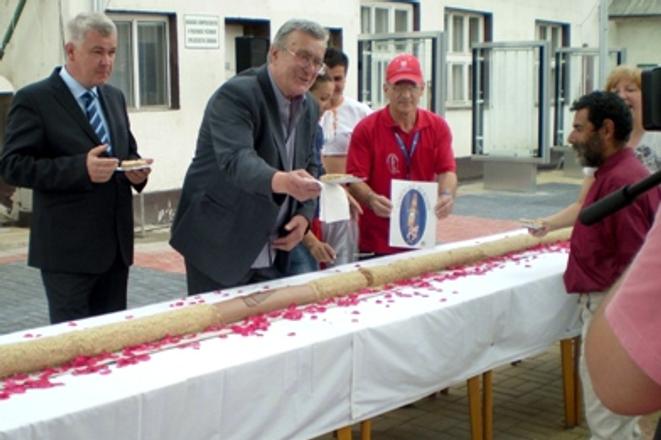TIBOR Koblíček, who turned 75 at the beginning of June, got a record-breaking fujara for his birthday from local confectioners. The cake was a replica of a fujara, the traditional Slovak musical instrument, and was unique enough to make it into the Slovak Book of Records. Confectioners from the municipality of Cinobaňa in Poltár district handcrafted the cake in the form of the instrument to honour Koblíček, who is famous for making fujaras and other folk instruments.
Michal Abelovský of the Novohrad education centre in Lučenec told the TASR newswire that the “birthday boy” cut the sweet fujara into pieces and offered one to everybody who came to the square in Cinobaňa to congratulate him. Afterwards, Koblíček displayed an exhibition of his best folklore instruments in the local house of culture.
“Visitors were able to see an overview of Koblíček’s masterpieces – fujaras, bagpipes, ozembuchs (a special rhythmic instrument), horns, pipes, and other instruments,” said the organiser of the exhibition. At the opening of the exhibition Koblíček was given a shepherd’s pouch containing 75 of the best artistic works by students in elementary schools from Cinobaňa, Poltár, Kokava and Rimavicou that all had Koblíček and his work as their theme.



 The record fujara cake is distributed among the public. (source: Vladimír Výbošťok (Slovenské rekordy))
The record fujara cake is distributed among the public. (source: Vladimír Výbošťok (Slovenské rekordy))